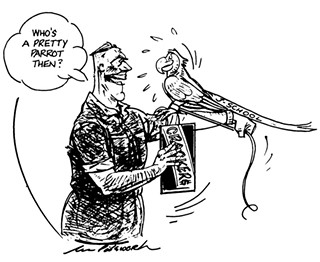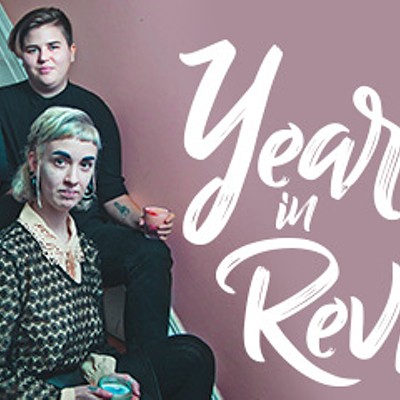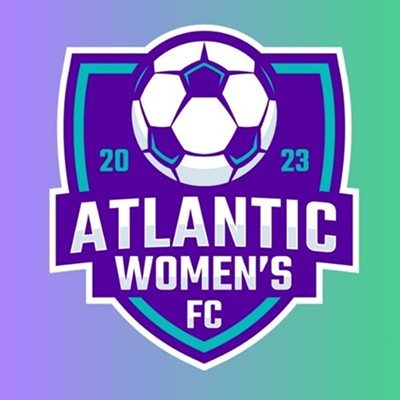Christmas, a time to celebrate peace and to thank our beneficent military for supporting Canadian universities. Last year, I wrote about how Dalhousie's Centre for Foreign Policy Studies was one of 11 similar academic outfits generously supported by DND, the Department of National Defence. Now, I'll point to the King's Journalism School, where budgets are tight, but hearts are light, thanks to another lucrative contract with the Pearson Peacekeeping Centre, which gets about $2 million a year from DND. Pearson also raises nearly $8 million on its own, partly by conducting military training exercises. And that's where the King's J-school fits in.
The King's/Pearson relationship began in 2005 when journalism students took part in a NATO exercise at the former Cornwallis military base involving about 260 soldiers, civilians and police, mainly from Holland and Germany. I was teaching at King's then and uneasily went along with the notion that the Dutch and Germans were learning how to bring peace to a fictional country called Fontinalis wracked by civil war. The journalism students were there to keep military commanders on their toes by asking tough questions and writing tough stories. And the J-school badly needed the $20 thousand Pearson was paying for our participation.
Well, I'm older and wiser now, though still suffering twinges of guilt over how journalism schools teach students to fit into a media system that rarely speaks truth to power. Think, for example, of how mainstream media ignored Canada's complicity in illegally overthrowing president Aristide in Haiti. Or the minimal reporting in Canadian media when United Nations forces open fire on Aristide supporters to punish them for demanding an end to foreign occupation. Our media portray UN forces in Haiti as the good guys struggling to restore peace in a "failed state," a situation strikingly similar to the fictional scenarios of the Pearson training exercises.
This fall, for example, eight King's students and two faculty members participated in another eight-day NATO exercise in Turkey. The Turkish military has a dreadful human rights record, but not to worry. The journalism students were asking tough questions as the Turks and their NATO allies once again struggled valiantly to bring peace to that fictional failed state. The Pearson exercise was designed to be as realistic as possible so that military commanders could learn how to deal with the chaos and confusion typical of real conflict. And that included learning how to get their PR messages across, a skill that Canada's military has already mastered in Afghanistan where "embedded" journalists report almost everything from the military's point of view. (No wonder that, except for the occasional deaths of Canadian soldiers, brutal NATO war comes across on Canadian TV screens as bloodless and benign.)
When I emailed Stephen Kimber, the J-school's acting director and the senior features writer for The Coast, to ask why King's journalism students were participating in military exercises partly designed to help Turkish forces hone their PR skills, he responded that the students were doing just the opposite. "Far from helping the Turkish military "manage' the media or polish its image, our role was to push them to be more open and accountable," Kimber wrote. When I pointed out that reputable news organizations would never allow their journalists to take part in such paid media training, Kimber, who was one of the faculty supervisors in Turkey, responded that military forces can learn all the PR skills they need, simply by watching TV or buying a newspaper. "All they have to do is see how easily "real journalists'—the ones who won't play in simulations because it is beneath their ethical sensitivities—can be played, and, more often play themselves in the name of nationalism, patriotism, etc."
The King's J-school plans to participate in two more military exercises, one in May with European Union forces in Germany and one next November with UN soldiers in Holland. Stephen Kimber sees the J-school as simply one of many paid "service providers," but I'd say it's another example of a university selling its soul to the military.















